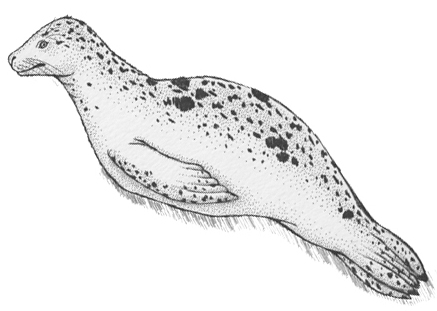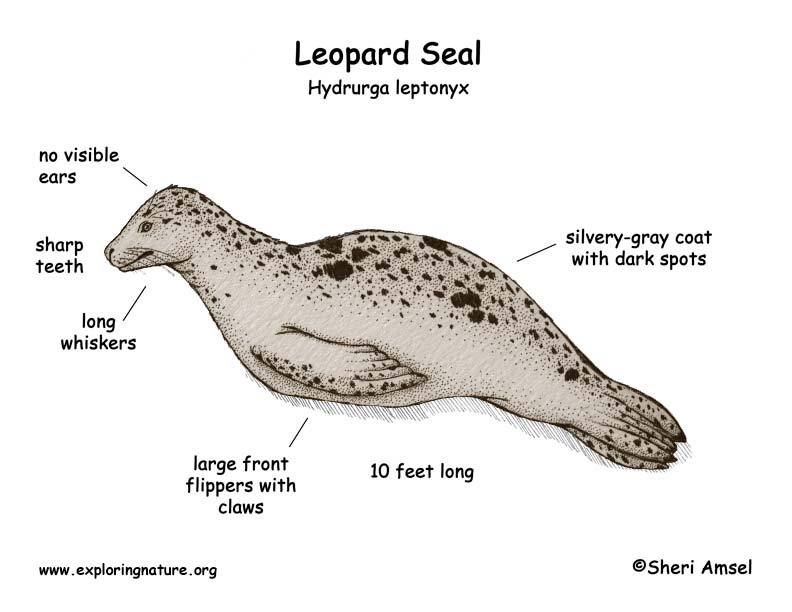

Antarctic Ocean and shores; occasionally along coasts of South America, South Africa, Australia, and New Zealand.
They live in coastal waters and shores.
They can weigh up to 1,000 pounds and reach 10 feet long. Their coat is a silvery-gray with dark spots. They have large front flippers with claws.
They are very fast swimmers.
They eat krill, squid, small seals, penguins, and other birds. Most of their diet is krill, that it strains from the water with its teeth that have special spaces through which it pushes out the sea water and keeps the krill! They also hunt penguins and other seals underwater.
They are killed by humans and killer whales.
Females are pregnant for almost 2 months before the baby begins to develop. This is called delayed implantation. Once it begins to grow, it is another 9 months before it is born. So all together the female carries the baby for 11 months (gestation).
They can live up to 25 years. They are listed as Lower Risk - least concern.
Kingdom: Animalia
Phylum: Chordata
Subphylum: Vertebrata
Class: Mammalia
Order: Carnivora
Suborder: Caniformia
Family: Phocidae
Genus: Hydrurga
Species: Hydrurga leptonyx
When you research information you must cite the reference. Citing for websites is different from citing from books, magazines and periodicals. The style of citing shown here is from the MLA Style Citations (Modern Language Association).
When citing a WEBSITE the general format is as follows.
Author Last Name, First Name(s). "Title: Subtitle of Part of Web Page, if appropriate." Title: Subtitle: Section of Page if appropriate. Sponsoring/Publishing Agency, If Given. Additional significant descriptive information. Date of Electronic Publication or other Date, such as Last Updated. Day Month Year of access < URL >.
Amsel, Sheri. "Seal (Leopard)" Exploring Nature Educational Resource ©2005-2024. November 25, 2024
< http://www.exploringnature.org/db/view/419 >

